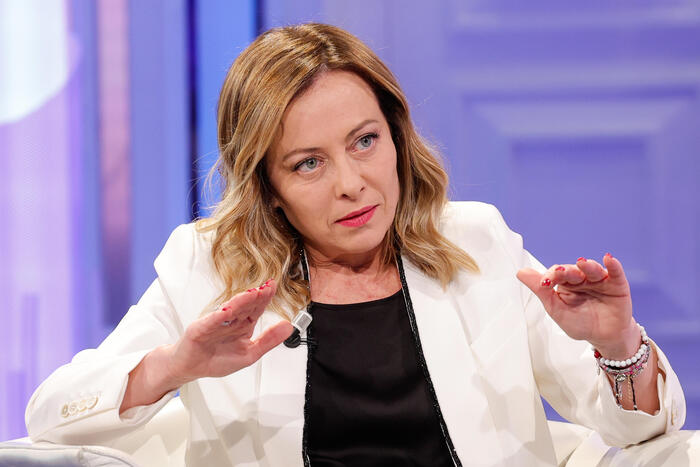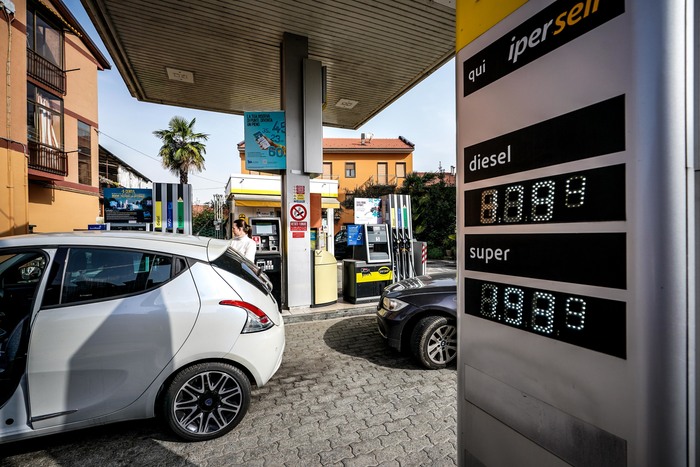Damascus-Sana
Scenes of crowding in front of petrol stations are returning again to form a crisis, the main roots of which are the tightening of the American-Western blockade against Syria and the approval of the so-called “Caesar Act” in addition to the theft of Syrian oil by the US occupation and the “Qasd militias” where citizens suffer from long waiting hours in front of those stations in hope By filling their cars with gasoline.
In interviews with SANA's correspondents in a number of governorates during their tours to some stations, citizens and those concerned clearly indicate that the main reason for the renewed crisis is that the countries hostile to Syria obstruct the arrival of oil supplies on time due to the tightening of the economic blockade in addition to the continuing phenomenon of smuggling and selling oil materials at times. On the black market.
At the Al-Jalaa gas station in Damascus, Riad Gulani describes to the SANA delegate his suffering by obtaining gasoline, expressing his hope that the concerned authorities will find a speedy solution to this renewed crisis coinciding with the tightening of the US blockade on Syria.
Dr. Eng. Musa Shehadat - retired - explains that this crisis is not new for the Syrian people in light of the war, calling on the concerned authorities to find a better mechanism to regulate the role of the stations and combat the phenomenon of smuggling and selling the material on the black market.
The gasoline crisis is not the first that Syria has experienced in light of the terrorist war and the unjust economic blockade on it, and perhaps the last of which was during the month of April of last year, and the government was able, through multiple measures, to bypass it, which was emphasized by the citizens and they all hope to find a near solution to the current crisis.
Citizens and drivers in front of petrol stations in Homs expressed their dissatisfaction with the long waiting situation of up to several hours to obtain the 30-liter quantities. Abu Muhammad - a taxi driver - suggested distributing gasoline station allocations in proportion to the amount of the substance, provided that all are filled Stations with petrol, even in smaller quantities, to avoid congestion on one station.
Maher - a taxi driver - believes that long waiting to get gasoline drains his work time, which affects his living conditions in light of the difficult economic conditions, and Abu Samir - a private car driver - and an employee wonders, “How can he coordinate his work hours and stand for long hours to get gasoline every four days “.
Maher Hassan, Director of Homs Customs, and Major General Muhammad al-Fa'ouri, Chief of the Governorate Police, confirmed in statements to SANA that customs and police patrols are widespread to control cases of smuggling oil materials and prevent their illegal sale, while Engineer Rami Al-Youssef, Director of Internal Trade in Homs, considered that the process of distributing gasoline is completely controlled and fair between the countryside And the city.
The scene was not better in the governorate of Daraa in terms of the scene of the car queues extending in front of the gas stations, as some drivers considered to the SANA reporter that the crisis needs good management to organize the queuing mechanism in a way that reduces the waiting hours for citizens, as Musa Ghazi said, "For the fourth day, I am looking for petrol and I cannot find it." While the Al-Shehadat student asked why gasoline was available on the black market in large quantities and at high prices, while these quantities were not available in the stations, indicating that many citizens switched from car owners to gasoline dealers and started selling the substance on the black market due to the high demand for it and its high prices.
More than 11 hours, Bashar al-Salamah, a taxi driver, waited in front of a petrol station to get his allowances of subsidized gasoline, pointing out that he refuses to buy gasoline on the black market so as not to be encouraging to those who take advantage of the people's need.
Assem Al-Zoubi - the owner of a fuel station - in the city of Daraa stated that he had not received an order since last Saturday and his role in obtaining gasoline next Monday, as he is forced to close his station for nine days until the arrival of his fuel request of about 20 thousand liters, indicating that everyone knows that There is a shortage of article due to economic sanctions and the so-called "Caesar Act".
The director of the branch of the Syrian Company for the Distribution and Storage of Petroleum Products, fuel in Daraa, Mahmoud al-Hariri explained that the governorate’s allocations before the recent crisis were 6 requests per day, equivalent to 130,000 liters, and they barely meet the needs of the governorate. Today the allocations have decreased to 4 requests, including a request for the government sector, indicating that the reason for the decrease in allocations Governorates of gasoline is the shortage of supplies that have been affected by Western economic sanctions against Syria, in addition to the theft of Syrian oil by the American occupation forces and the "Qasd militia".
In Aleppo, where the suffering is greater in obtaining allocations of gasoline due to the severe congestion in front of the stations, as Firas Marasho, Radwan Banna and Muhammad Al Hanafi indicated that they waited about two days for the turn of gasoline in a "good station" before they were able to fill their allocations of gasoline, pointing to a defect. In the process of mobilizing and organizing the role.
Abd al-Rahman al-Bash - the owner of a Taiba fuel station - said: “The role for citizens is being organized in cooperation with the police units. Yesterday, 39,000 liters of gasoline arrived at the station, indicating the low number of allocations to the governorate, which led to a shortage in the amount of gasoline and a crisis in distribution. “.
Long columns of cars lined up in front of the "Chiyah station" in Aleppo, where Safwan Al-Taha said that the blockade imposed on Syria and the lack of imports, in addition to the theft of Syrian oil by the American occupation, led to bottlenecks in the distribution of gasoline, calling everyone to be patient to overcome the crisis, while the owner of the station noted Yasser Chiah indicates that about 40,000 liters arrive daily, distributed according to the electronic card system and a single drum of cars.














